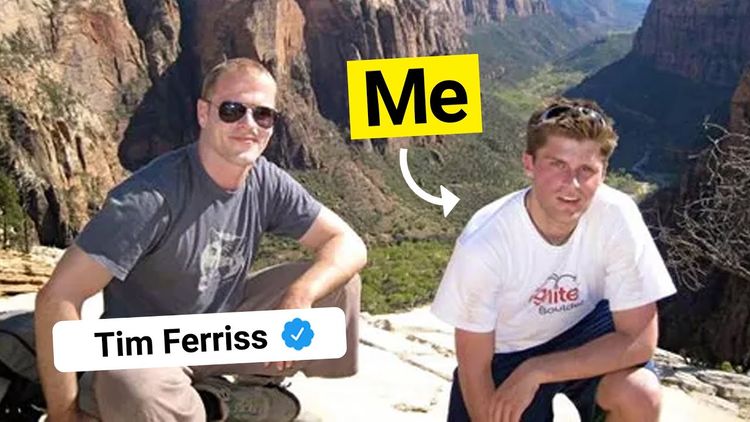“What you’ll wish you’d known”
My buddy Jeff Widman sent me this article the other day. It’s a rejected high school graduation speech that Paul Graham wrote. While a few of his points are overly simplistic, it’s definitely worth reading. But if you don’t have time to read it, here are some notable excerpts:

My buddy Jeff Widman sent me this article the other day. It’s a rejected high school graduation speech that Paul Graham wrote. While a few of his points are overly simplistic (even for a graduation speech), it’s definitely worth reading. But if you don’t have time to read it (it’s about 10-pages long printed out), here are some notable excerpts:
- I suspect if you had the sixteen year old Shakespeare or Einstein in school with you, they’d seem impressive, but not totally unlike your other friends. Which is an uncomfortable thought. If they were just like us, then they had to work very hard to do what they did. And that’s one reason we like to believe in genius. It gives us an excuse for being lazy.
- You decide where you want to be in twenty years, and then ask: what should I do now to get there? I propose instead that you don’t commit to anything in the future, but just look at the options available now, and choose those that will give you the most promising range of options afterward… Suppose you’re a college freshman deciding whether to major in math or economics. Well, math will give you more options: you can go into almost any field from math. If you major in math it will be easy to get into grad school in economics, but if you major in economics it will be hard to get into grad school in math.
- It’s not so important what you work on, so long as you’re not wasting your time. Work on things that interest you and increase your options, and worry later about which you’ll take.
- The best protection is always to be working on hard problems… If you’re not worrying that something you’re making will come out badly, or that you won’t be able to understand something you’re studying, then it isn’t hard enough. There has to be suspense.
- [People who do great things] know they’ll feel bad if they don’t work, and they have enough discipline to get themselves to their desks to start working. But once they get started, interest takes over, and discipline is no longer necessary.
- Don’t disregard unseemly motivations. One of the most powerful is the desire to be better than other people at something… Another powerful motivator is the desire to do, or know, things you’re not supposed to. Closely related is the desire to do something audacious. Sixteen year olds aren’t supposed to write novels. So if you try, anything you achieve is on the plus side of the ledger; if you fail utterly, you’re doing no worse than expectations.
- The important thing is to get out there and do stuff. Instead of waiting to be taught, go out and learn. Your life doesn’t have to be shaped by admissions officers. It could be shaped by your own curiosity. It is for all ambitious adults. And you don’t have to wait to start. In fact, you don’t have to wait to be an adult. There’s no switch inside you that magically flips when you turn a certain age or graduate from some institution. You start being an adult when you decide to take responsibility for your life. You can do that at any age.
Again, I recommend you read this. I left out some of the best parts because he gradually builds up to them throughout the article.





Member discussion